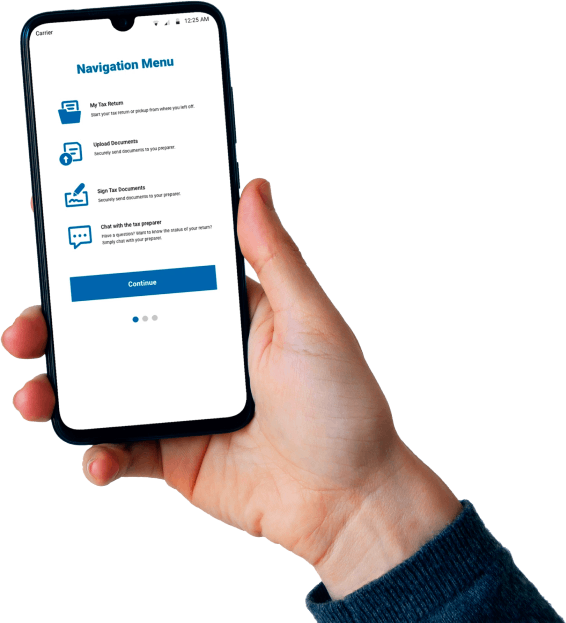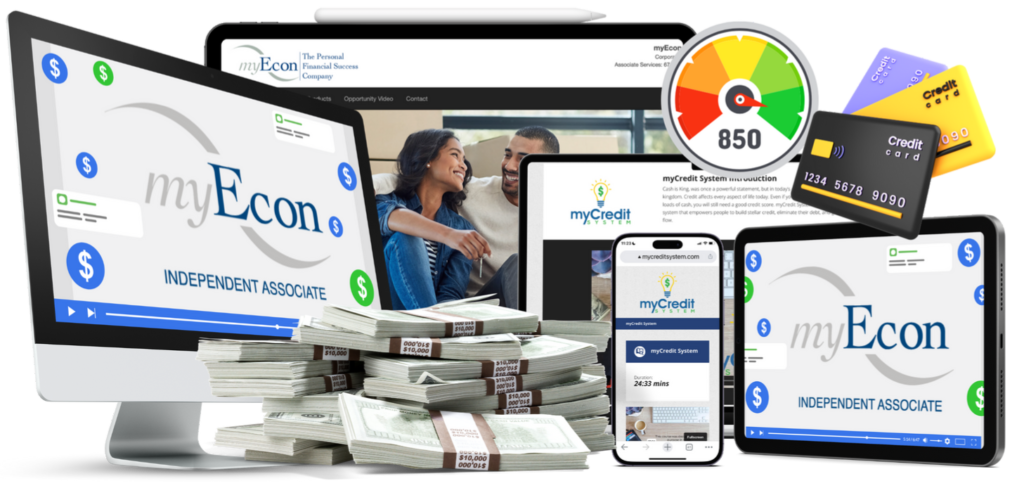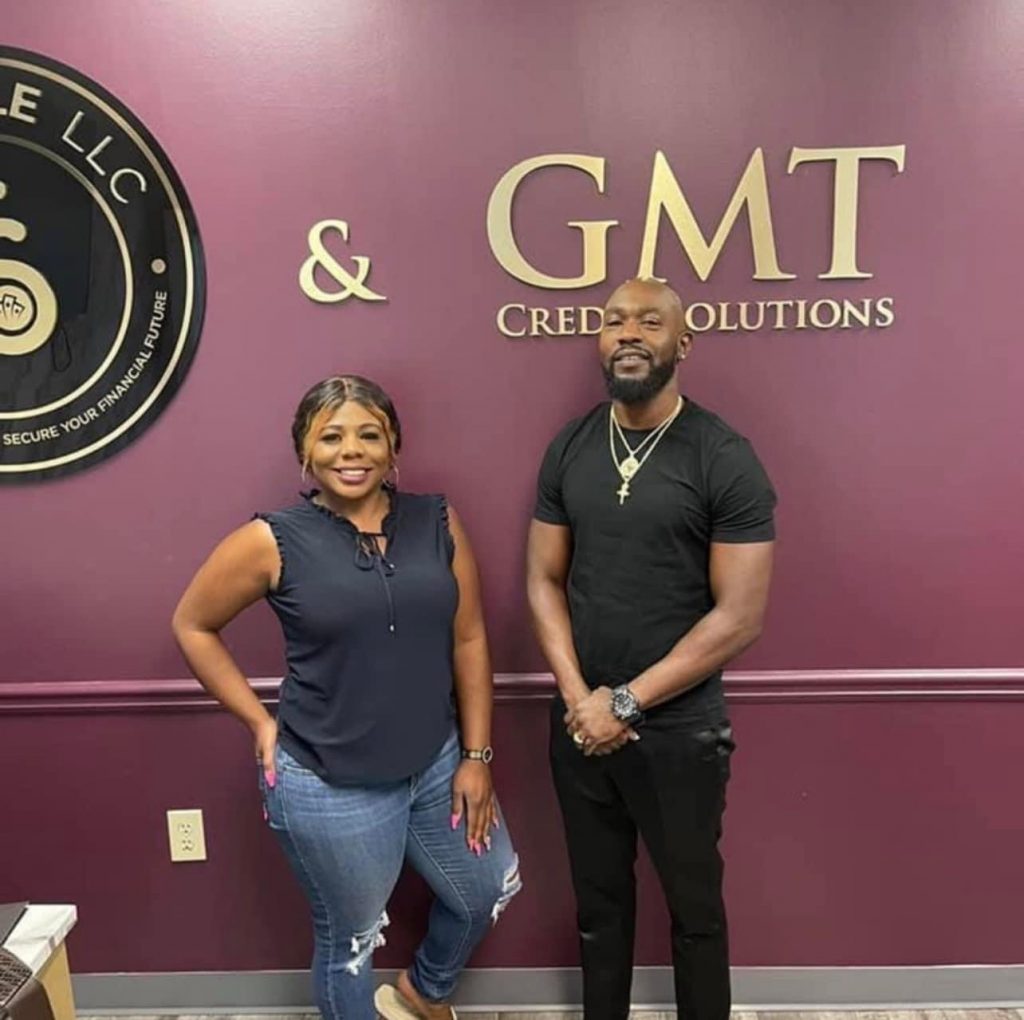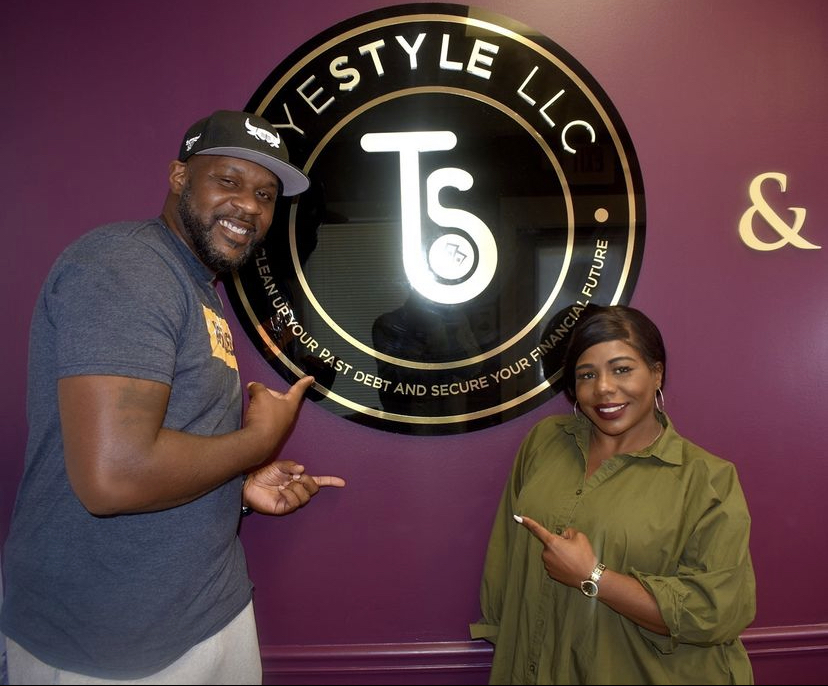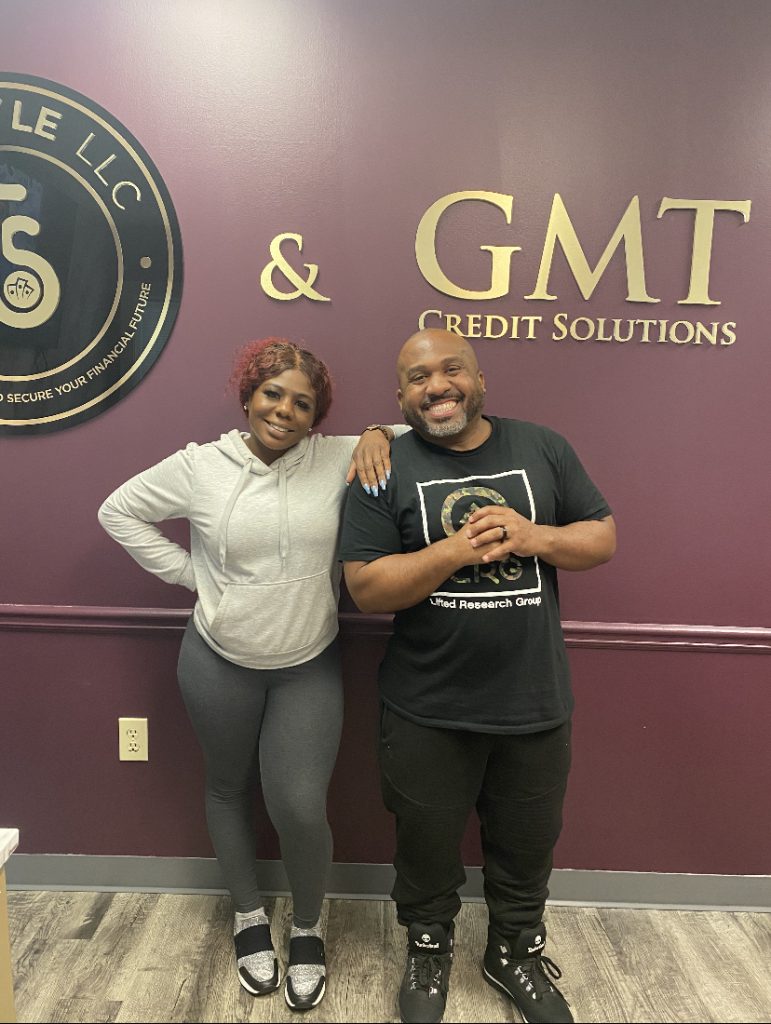➤ Need Funding or Building Your Business Credit? Click Here
➤ Need to Boost Your Credit Score? Click Here
➤ Connect with us on Facebook: The GMT Academy LLC
➤ Follow Us on Instagram: @TyeStyleCreditLady
We know that having good personal credit is of utmost importance in our long-term planning for life, as it lets us obtain favorable terms on loans, secure credit cards and build trust with lenders through building our creditworthiness. In the world of business, however, firms are treated in the same manner as you and I—as individuals, per se, who can qualify for loans, build credit scores, and so on. Businesses can also suffer many of the same consequences as personal credit—such as derogatory marks from missed payments, lower credit scores, and sometimes, far worse.
Here are some explanations behind the world of business credit, factors within this great machine, and how to build your business credit score up to a point where you can obtain loans, bank accounts and other types of credit lines to help grow your dream!
Business Credit Explained
Business credit is in the business’s name and the business’s ability to pay debts, not the business owners. Since the business qualifies for credit, in most cases there is no personal credit check needed from the business owner. With business credit, the business builds its own credit profile and credit score. With an established profile, businesses can ultimately build their way to qualify for greater credit, better terms and higher quality lenders. Businesses can also use credit to qualify for revolving store cards from retitlers such as Staples, Walmart, Costco and even lenders such as MasterCard, Visa and AMEX. These businesses can also qualify for credit lines and other kinds of large-scale loans.
Pros Vs. Cons of Business Credit
One major distinction between personal credit scores, is that business credit scores are based only on whether the business pays its bills on time—otherwise known as its repayment history. This being said, a business owner can often obtain credit much faster using their business credit profile versus their personal credit profile. Personal credit scores, on the other hand, are based on five individual factors which each weight differently towards the overall composition.
Ultimately, the business credit process easily enables business owners to have double the amount of credit-wielding power, due to their personal credit score and now, their business credit score and history. A credit profile built for businesses is often completely separate from that of the business owner’s. When done correctly, business credit can also be built without a personal credit check. Some lenders will even approve business owners without the owner needing to take on personal liability! There is also no personal credit reporting of business accounts. Meaning in the case of a default, the business owner’s personal assets can’t be pursued.
Almost any business can obtain business credit as long as it has an EIN number and entity setup. You don’t need collateral or financials, and you can be a startup firm too. You just need to know the proper building steps to establish and grow your credit.
There are some negative discrepancies when working with business credit compared to personal credit, however. When a business owner applies for financing, for instance, their business credit is reviewed. Not having business credit even established will get an owner declined for financing immediately. There are also no regulations requiring lenders to notify business owners for their reason for denial—so most never even know! It also turns out that anyone can pull your business credit reports without your permission, as it’s not needed. Clients, prospects, potential buyers, even competitors can see your business info. They can view your payment history, high credit limits, employees and revenue, past payment performance and even more.
Steps To Building Your Business Credit Without Your SSN
Any business starts building brand new credit much in the same way as a consumer does. The business:
– Starts with no credit profile
– Gets approved for new credit that reports to the business reporting agencies
– Uses the credit and pays the bill timely
– Establishes a positive business credit profile
– Continues using the credit and paying bills on time to qualify for more credit
Setting Up Your Company To Build Business Credibility
It’s important to note that the perception which lenders, vendors and creditors have of your business is critical to your ability to build strong business credit. Therefore, before applying for business credit, also ensure your firm meets ore exceeds all lender creditability standards. There are over 20 credibility points necessary for a business to have a strong, credible foundation. Some of them are discussed in detail below.
Business Name – It’s crucial that you use your exact business legal name when beginning to build business credit. Your full business name should include any recorded DBA filing you will be using. Ensure your business name is also exactly the same on y our corporation papers, licenses, and bank statements.
Corporate Entities – You can build business credit with almost any corporate entity type. However, if you truly want to separate business credit from personal credit (and your SSN) your business must be a separate legal entity—not a sole proprietorship or partnership. Unless you have a separate business entity such as an LLC or Corporation, you might be “doing business” but are not truly “a business”. You need these types of firms to truly distinguish business from personal credit.
EIN – Whether your business has employees or not, your business entity must also have an Federal Tax ID number, or EIN. Just like how people have Social Security Numbers, your firm has its own EIN which identifies it from other businesses. Your EIN is used to open your bank account and build your credit profile, so take the time to verify that all agencies, banks and trade credit vendors have your business associated with the same Tax ID number.
Business Address – You business must be a real brick-and-mortar building. It also has to have a deliverable physical address. This cannot be in the form of a PO Box, a home address, or a UPS address. Note that some lenders will not approve funding unless this criteria is met. There are three main business address solutions we can recommend:
Address Only – receive mail and packages at your dedicated business address.
Virtual Office – Professional business address with dedicated phone and fax numbers, receptionist services, and part-time use of fully furnished offices and meeting rooms.
True Office – Your own full-time private office with receptionist services, dedicated phone and fax, internet, full furnishings, meeting rooms, and more.
Phone Number/411 – You must have a dedicated business phone number that is listed with the 411 directory assistance, under the business name. Lenders, vendors, creditors and even insurance providers will verify that your business is listed with 411. A toll-free number will give your firm credibility, but you need a local business number for the listing with 411 directory assistance. Lenders perceive 800 numbers or toll-free phone numbers are a good sign of business credibility. Even if you’re a single owner with a home-based business, toll-free numbers can provide the perception that you’re an even bigger company. It’s also incredibly easy and inexpensive to set up virtual local phone or toll-free numbers. Keep in mind that a cell or home phone numbers as your main business line could get you flagged as an un-established business which is too high of a risk. Don’t give your personal or residential phone as the business’s phone number. If you need, use a virtual number, which can be forwarded to any cell or landline phone.
Fax Number – Lenders perceive a credible business as one that has a fax number. While this doesn’t seem significant in modern day, as a business, you will still need a fax number to receive important documents, and to even fax in some of your credit applications. You can setup an e-fax that goes directly to your email if needed.
Website – Note that credit providers will research your company on the internet, and so it’s best if they can learn everything in one go—directly from your company’s website. Not having a website for your firm will severely hurt your chances of obtaining business credit. There many online resources which offer affordable business sites. They can help you build a good internet presence which displays an overview of your company’s services and contact information.
Email Address – It is important to get a company email address for your business. It’s not only professional—it greatly helps y our chances to getting approval from credit providers. Setting up a business email is just too easy and inexpensive to neglect! That being said, avoid using free email services such as Yahoo! and Hotmail. There is nothing worse than a credit provider seeing an email like “partydude2009@yahoo.com” as a company’s official email. The email should be in an @yourcompany.com format. Examples would be support@yourcompany.com, or john.smith@yourcompany.com.
Bank Account – Your business banking history is vital to your future success of being able to secure larger business loans. The date you open your business bank account is the day that lenders consider your business to have started. This means even if you incorporated your business 10 years ago, if you opened your company’s bank account yesterday, then your business started yesterday. The longer your business banking history is, the better your borrowing potential will be. Note that having a high account balance is essential in obtaining an excellent bank rating. Bank Ratings range from 1-5, but it’s best to have a Rating of 5 and a minimum balance of at least $10,000 or higher. Remember—having a good Bank Rating is essential for loan approval down the road.
Licensing – One of the most common mistakes made when building business credit is having non-matching business addresses on your business licenses. Even worse is not even having the required licenses for your type of business to operate legally. You will need to contact the State, County and City Government offices to see if there are any required licenses and permits to operate your type of business. Make sure each of these business filings are made correctly, and that your IRS filings are listed correctly.
Business Listings – Take the time to verify that main agencies, such as the State, IRS, Bank, and 411 have your business listed the same way and with your exact legal name. Also definitely ensure that every bill you get (such as power and phone bills or rental bills from landlords) has the business name listed correctly and that these bills come to the correct business address.
Obtaining Your Business Credit Reports
Your business credit reports are offered by three main bureaus, just like your personal credit scores. These bureaus are Experian, Equifax and Dun & Bradstreet—unlike TransUnion, which would replace D&B in the personal credit world. You will first want to get a copy of your business credit reports to see what is being reported.
Experian – You can visit www.smartbusinessreports.com for a copy of your Smart Business report. This is usually $49-99. Find out how many trade lines are reporting, and see if you have a business credit score assigned to begin with. Also check to see if you have an active Experian Business Profile and check on any recent inquiries which have occurred.
Equifax – You can purchase a copy of your Equifax Small Business Report on the Equifax website. It typically takes more time to create a file with Equifax Small Business than D&B and Experian. This is why it’s important to apply with credit providers who report to Equifax. The full Equifax report costs $99.95.
Dun & Bradstreet – Obtaining a DUNS Number, or the criteria rating which Dun & Bradstreet offers, will begin the process of building your business credit profile with this bureau. Your DUNS # will also play an important role in enabling your business to borrow without a personal guarantor. Accessing Your DUNS # will usually cost anywhere between $299-699.
The Steps To Building Business Credit
A business credit report can be started much the same as a consumer report commonly is—with small credit cards. The business can be approved for small cards to help them build up their initial credit. These types of standard cards in the business world are referred to as “vendor credit”.
Vendor Accounts
A vendor line of credit is when a vendor company extends a line of credit to your business on Net 15, 30, 60, or 90 day terms. This means that you can purchase their products or services up to a maximum dollar amount and you have 15, 30, 60 or 90 days to pay the bill in full. So if you were set up on Net 30 terms and were to purchase $300 worth of goods, then that $300 is due within the next 30 days.
You can get products and services for your business needs and defer the payment on those for 30 days, thereby easing cash flow. And some vendors will approve your company for Net 30 payment terms upon verification of as little as your EIN and a confirmed 411 listing. Note: you should always first apply without using your SSN. Some vendors will request it and some may even tell you on the phone they require it, but always submit first without it. Also keep in mind, when your first Net 30 account reports your trade-in to D&B, The DUNS system will automatically activate your file if it isn’t already. This is also true for Experian and Equifax.
It’s crucial to build your report up to where you have a total of at least five Net 30 day pay accounts reporting to bureaus. Some vendors may require an initial prepaid order before they can approve your business for terms. Your vendors also do not necessarily have to serve 100% of your business needs.
Pay your Net 30 vendor accounts in full and on-time, as you should with any lender. You must be patient and allow time for vendors’ reporting cycles to get into the systems. This means it typically takes 3 cycles of Net accounts reporting to build credit scores. The good news is that it usually only takes 90 days or less to actually establish a score and profile with vendors.
Keep in mind, most merchants and major retailers (such as Costco or Walmart) do offer business credit, they just don’t advertise it. There is really no benefit to the merchant to promote credit with no personal liability if the owner is willing to take on that liability. Therefore, they don’t promote their business credit side of things and regularly ask for an SSN.
Revolving Accounts
After having established five vendor trade-ins, you will be able to start getting approved for revolving business credit cards and accounts. A revolving credit account is one that allows you to pay a minimum due balance per month and not the full outstanding balance. These accounts normally report to Experian, D&B and sometimes Equifax. Because of the nature of how these accounts report, they will help build your business credit on a larger scale than just Net 30 day vendors alone. Revolving credit approval will start coming in from stores, and store revolving credit must be obtained before the business owner attempts to obtain Visa, MasterCard and AMEX type lines of credit.
Vendor accounts must first be used to establish and build a profile and score, after which revolving store credit can be obtained. Note that most stores will not approve a business owner for business credit unless the owner has an established credit profile and score, just like in the consumer world.
Once 10 total accounts are reflecting on the credit report, an owner can start applying for Visa, MC and AMEX cards. Approval amounts will be equivalent to the highest credit limit account existing on the business report. Try to maintain at least 10 accounts with at least one of them having a $10,000 high credit limit.
It’s essential to keep using the credit you are given, to pay it off, to keep applying for more and to request lenders to raise your credit limits. If you do all this, you will see your business credit skyrocket until higher and higher limit credit accounts are obtained within 6-12 months! Contact us at TyeStyle Solutions for more advice and help into starting or building your business credit journey!


